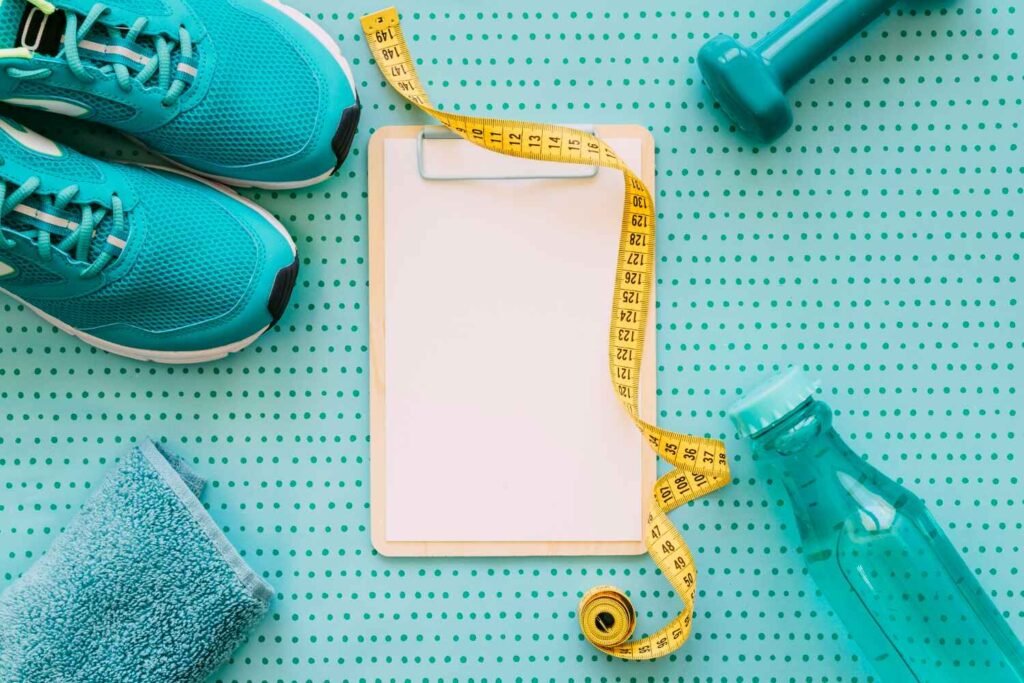The Role of Sleep in Weight Loss and How to Improve It
Why Sleep is the Missing Link in Your Weight Loss Journey
When it comes to weight loss, diet and exercise often steal the spotlight. But there’s another critical factor that can make or break your progress: sleep. Quality sleep is essential for maintaining a healthy metabolism, controlling hunger hormones, and optimizing your body’s fat-burning processes. Yet, many people overlook this powerful weight loss ally.
If you’ve been eating healthy, hitting the gym, and still not seeing the results you want, it might be time to look at your sleep habits. Let’s explore how sleep impacts weight loss and discover actionable tips to help you improve it.
The Science Behind Sleep and Weight Loss
Sleep isn’t just about resting your mind; it’s a time when your body repairs, restores, and regulates essential functions. Here’s how sleep ties into weight loss:
- Hormonal Balance: Poor sleep disrupts the balance of key hormones that influence your appetite and metabolism:
- Leptin: This hormone signals your brain that you’re full. When you’re sleep-deprived, leptin levels drop, making you feel hungrier.
- Ghrelin: Known as the hunger hormone, ghrelin increases when you lack sleep, causing intense cravings for high-calorie foods.
- Insulin Sensitivity: Lack of sleep can make your body less sensitive to insulin, which can lead to fat storage and even increase your risk of type 2 diabetes.
- Cortisol Levels: High cortisol (the stress hormone) levels due to poor sleep can lead to weight gain, especially around the belly.
When these hormones are out of balance, losing weight becomes an uphill battle.
How Poor Sleep Affects Your Weight Loss Goals
Poor sleep can sabotage your weight loss efforts in several ways:
- Increases Hunger and Cravings: When you don’t get enough sleep, your body craves quick sources of energy like sugary snacks and processed carbs.
- Reduces Willpower: Tiredness makes it harder to resist unhealthy food choices. The more fatigued you are, the more likely you are to reach for a bag of chips instead of a salad.
- Slows Metabolism: Inadequate sleep can reduce your resting metabolic rate (RMR), which is the number of calories your body burns while at rest. A slower metabolism means fewer calories burned, making it harder to lose weight.
- Disrupts Fat-Burning: Sleep is when your body shifts into fat-burning mode. Without enough sleep, this process is disrupted, reducing the effectiveness of your workouts.
- Leads to Poor Workout Performance: Lack of energy from poor sleep makes exercising less effective. You might skip workouts or not push yourself as hard, hindering your weight loss progress.
How Much Sleep Do You Really Need for Weight Loss?
The sweet spot for adults is typically 7-9 hours of quality sleep per night. But it’s not just about quantity; quality matters too. Here’s a quick guide:
- 7 Hours: The minimum amount for maintaining cognitive function and healthy hormone levels.
- 8 Hours: Ideal for most people to support fat loss and metabolic function.
- 9 Hours: If you’re particularly active or stressed, your body may need more rest to recover fully.
Sleep consistency—going to bed and waking up at the same time each day—is also essential for maintaining a healthy sleep cycle.
Sleep Quality vs. Sleep Quantity: Why Both Matter
You might be in bed for 8 hours, but if you’re waking up frequently or tossing and turning, it’s not restorative sleep. Here’s how to measure your sleep quality:
- Sleep Efficiency: The percentage of time you spend asleep while in bed. A good sleep efficiency rate is 85% or higher.
- Sleep Cycles: Quality sleep includes 4-5 sleep cycles per night, each lasting 90-110 minutes. Each cycle has different stages, including deep sleep and REM sleep, crucial for recovery.
Signs of poor sleep quality:
- Waking up tired
- Frequent nighttime awakenings
- Snoring or sleep apnea
- Difficulty falling asleep
If these sound familiar, improving sleep quality is key to boosting your weight loss.
Tips to Improve Sleep for Better Weight Loss Results
Now that you know why sleep matters, here are practical tips to help you sleep better and shed those pounds more effectively.
- Create a Relaxing Bedtime Routine
- Establish a wind-down ritual 30-60 minutes before bed. Activities like reading, meditating, or taking a warm bath can signal to your brain that it’s time to sleep.
- Optimize Your Sleep Environment
- Dark Room: Use blackout curtains or an eye mask to block light.
- Cool Temperature: Aim for a room temperature of 60-67°F (15-19°C) for optimal sleep.
- Quiet Space: Use earplugs, white noise machines, or fans to drown out disruptive sounds.
- Limit Screen Time Before Bed
- The blue light from phones, tablets, and TVs interferes with melatonin production, a hormone that regulates sleep. Aim to unplug at least an hour before bedtime.
- Avoid Stimulants Late in the Day
- Caffeine, nicotine, and even alcohol can disrupt your sleep. Try to limit caffeine intake to before 2 PM.
- Exercise Regularly but Not Too Late
- Regular physical activity promotes better sleep, but working out too close to bedtime can have the opposite effect. Aim to finish intense exercise at least 3 hours before bed.
- Maintain a Consistent Sleep Schedule
- Going to bed and waking up at the same time every day (even on weekends) helps regulate your internal clock and improves sleep quality.
- Mind Your Evening Meals
- Heavy, rich foods can cause discomfort and disrupt sleep. Aim for lighter meals in the evening and finish eating at least 2 hours before bed.
The Connection Between Sleep Deprivation and Stubborn Belly Fat
Ever wonder why that stubborn belly fat just won’t budge, no matter how hard you try? Sleep deprivation may be the culprit. Here’s how poor sleep leads to unwanted belly fat:
- Cortisol Spikes: When you don’t sleep well, your cortisol levels rise. This stress hormone encourages fat storage, especially in the abdominal area.
- Increased Appetite: Poor sleep messes with hunger hormones like leptin and ghrelin, making you crave sugary, high-fat foods.
- Reduced Fat-Burning: During deep sleep, your body enters a fat-burning state. Missing out on this crucial phase means fewer calories burned and more fat retained.
To tackle belly fat, focusing on improving your sleep can be just as important as diet and exercise.
How Sleep Enhances Workout Recovery and Performance
Exercise is essential for weight loss, but without quality sleep, your workouts won’t be as effective. Here’s how sleep supports fitness and recovery:
- Muscle Repair: During deep sleep, your body repairs and rebuilds muscles. Skimping on sleep can slow this process, leading to longer recovery times.
- Energy Levels: A good night’s sleep refuels your energy, making it easier to push through challenging workouts. Sleep deprivation leaves you feeling sluggish and unmotivated.
- Growth Hormone Release: Sleep triggers the release of human growth hormone (HGH), which helps with muscle growth and fat burning. Less sleep means less HGH.
- Injury Prevention: Fatigue increases your risk of injuries. When you’re well-rested, your coordination and focus improve, keeping you safe during workouts.
Prioritizing sleep ensures that every sweat session counts and helps you stay on track with your weight loss goals.
Common Sleep Challenges and How to Overcome Them
Sometimes, getting quality sleep isn’t as easy as it sounds. Here are common sleep problems and actionable solutions to overcome them:
- Difficulty Falling Asleep
- Solution: Establish a consistent bedtime routine. Try reading a book, meditating, or practicing deep breathing to signal to your brain that it’s time to sleep.
- Waking Up Frequently
- Solution: Avoid drinking large amounts of water before bed. Ensure your room is cool and dark, and minimize noise disruptions with earplugs or a white noise machine.
- Stress and Anxiety
- Solution: Practice relaxation techniques like mindfulness or journaling before bed. Writing down your worries can help clear your mind.
- Snoring or Sleep Apnea
- Solution: If snoring is severe, consult a healthcare professional. Sleeping on your side and maintaining a healthy weight can reduce symptoms.
- Technology Disruptions
- Solution: Limit screen time at least an hour before bed. If you must use devices, enable blue light filters to minimize disruption.
- Irregular Schedule
- Solution: Aim to go to bed and wake up at the same time every day, even on weekends. This consistency helps regulate your body’s internal clock.
Foods and Drinks That Promote Better Sleep
What you eat and drink can have a significant impact on your sleep quality. Incorporate these sleep-friendly foods into your evening routine:
- Almonds and Walnuts: These nuts are rich in melatonin, which helps regulate sleep.
- Chamomile Tea: Known for its calming properties, chamomile tea can help reduce anxiety and improve sleep quality.
- Bananas: Packed with magnesium and potassium, bananas help relax your muscles and nervous system.
- Kiwi: This fruit contains serotonin and antioxidants, which may improve sleep duration and quality.
- Warm Milk: The tryptophan in milk helps boost melatonin production.
- Fatty Fish: Salmon, mackerel, and tuna are rich in omega-3 fatty acids and vitamin D, which promote better sleep.
Avoid heavy, spicy, and high-sugar foods before bed, as they can disrupt your sleep cycle.
Lifestyle Habits That Support Better Sleep
Improving your sleep isn’t just about what you do at bedtime—it’s a 24-hour effort. Here are lifestyle changes that can enhance sleep quality:
- Stay Active During the Day
- Regular physical activity helps regulate your sleep cycle. Aim for at least 30 minutes of exercise, but avoid vigorous workouts too close to bedtime.
- Get Natural Light Exposure
- Sunlight helps regulate your circadian rhythm. Spend at least 15-30 minutes outside during the day, especially in the morning.
- Reduce Caffeine Intake
- Limit coffee, tea, and other caffeinated drinks to the morning hours. Caffeine can stay in your system for up to 8 hours.
- Manage Stress Levels
- High stress can keep you up at night. Practice relaxation techniques like yoga, meditation, or deep breathing to keep stress at bay.
- Limit Naps
- Short naps (15-20 minutes) can boost energy, but long or late-day naps can interfere with nighttime sleep.
Track Your Sleep for Weight Loss Success
Monitoring your sleep habits can provide insights into how sleep impacts your weight loss journey. Use these methods to track your sleep:
- Sleep Apps: Apps like Sleep Cycle and Calm track your sleep patterns and provide suggestions for improvement.
- Wearable Technology: Devices like Fitbit, Garmin, and the Oura Ring track sleep duration, quality, and efficiency.
- Sleep Journals: Keep a journal to note your sleep times, how you feel upon waking, and any disruptions during the night.
Analyzing this data can help you identify patterns and make informed changes to improve your sleep and support weight loss.
The Powerful Combination of Sleep, Diet, and Exercise
Think of sleep, diet, and exercise as the three pillars of weight loss. If one pillar is weak, the structure collapses. Here’s how they work together:
- Diet: Provides the nutrients and energy your body needs to function and recover.
- Exercise: Builds strength, burns calories, and improves metabolic rate.
- Sleep: Regulates hormones, supports recovery, and fuels your willpower to stay on track.
When you prioritize all three, your weight loss journey becomes smoother and more sustainable. Sleep Myths That Are Holding Back Your Weight Loss Goals
In our journey to better sleep and weight loss, many myths can mislead us. Let’s bust these common misconceptions and set the record straight.
- Myth: You Can “Catch Up” on Sleep During the Weekend
- Reality: Unfortunately, lost sleep can’t be fully recovered by weekend lie-ins. Consistency is key. Irregular sleep patterns confuse your internal clock and can lead to poor sleep quality.
- Myth: 5 Hours of Sleep is Enough if You Feel Fine
- Reality: While you might feel “fine” temporarily, chronic sleep deprivation affects your metabolism, mental clarity, and overall health. Most adults need 7-9 hours to function optimally.
- Myth: Exercising Late at Night Helps You Sleep Better
- Reality: Intense workouts too close to bedtime can spike your adrenaline and body temperature, making it harder to fall asleep. Aim to finish workouts at least 3 hours before bedtime.
- Myth: Alcohol Helps You Sleep Better
- Reality: While alcohol might make you drowsy, it disrupts your sleep cycles and reduces restorative REM sleep. This can lead to poor sleep quality and weight gain.
- Myth: Snoring is Harmless
- Reality: Snoring can be a sign of sleep apnea, a serious condition that impacts breathing and sleep quality. If you snore frequently, it’s best to consult a healthcare professional.
By understanding and avoiding these myths, you can take meaningful steps to improve both your sleep and your weight loss progress.
How to Create a Personalized Sleep Plan for Weight Loss
Improving your sleep requires a plan tailored to your lifestyle and goals. Here’s a step-by-step guide to creating a personalized sleep plan:
- Assess Your Current Sleep Habits
- Track your sleep for a week. Note your bedtime, wake-up time, and how you feel each morning. Identify any patterns or obstacles to good sleep.
- Set Realistic Sleep Goals
- Aim for 7-9 hours of sleep each night. If you’re currently getting 5 hours, gradually add 15-30 minutes each night until you reach your goal.
- Design a Nighttime Routine
- Develop a wind-down routine that helps you relax. This could include reading, meditating, or taking a warm bath. Stick to the same routine every night.
- Optimize Your Sleep Environment
- Make your bedroom a sleep sanctuary:
- Darkness: Use blackout curtains or an eye mask.
- Cool Temperature: Keep the room between 60-67°F (15-19°C).
- Comfortable Bedding: Invest in a good mattress and pillows.
- Make your bedroom a sleep sanctuary:
- Limit Sleep Disruptors
- Reduce caffeine, alcohol, and heavy meals in the evening. Avoid screens at least an hour before bed.
- Stay Consistent
- Go to bed and wake up at the same time every day, even on weekends. Consistency helps reinforce your body’s sleep-wake cycle.
- Monitor Progress
- Use a sleep tracker or journal to monitor improvements. Adjust your plan as needed to keep moving toward better sleep and weight loss.
The Impact of Napping on Weight Loss and Energy Levels
Naps can be a double-edged sword. When done right, they can boost energy and productivity. When overdone, they can disrupt nighttime sleep. Here’s how to nap smartly:
- Keep Naps Short
- Aim for 15-20 minutes to avoid grogginess. These short naps help refresh your mind without interfering with nighttime sleep.
- Nap in the Early Afternoon
- The best time for a nap is between 1 PM and 3 PM. This aligns with your natural dip in energy levels and won’t affect your nighttime sleep.
- Avoid Late-Day Naps
- Napping too late (after 4 PM) can make it harder to fall asleep at night.
- Create a Calm Environment
- Find a quiet, dark place to nap. Use an eye mask and earplugs if necessary.
Smart napping can provide the energy boost you need to stay active and make healthier choices throughout the day.
The Role of Mindfulness and Meditation in Better Sleep
Stress and anxiety are major sleep disruptors, making weight loss more challenging. Mindfulness and meditation are powerful tools to calm your mind and improve sleep quality.
- Mindful Breathing
- Focus on your breath to anchor your mind and reduce stress. Try the 4-7-8 technique:
- Inhale for 4 seconds, hold for 7 seconds, and exhale for 8 seconds. Repeat until you feel relaxed.
- Focus on your breath to anchor your mind and reduce stress. Try the 4-7-8 technique:
- Body Scan Meditation
- Lie down and mentally scan your body from head to toe, noticing any tension and consciously relaxing each muscle group.
- Guided Sleep Meditations
- Apps like Calm, Headspace, and Insight Timer offer guided meditations specifically designed to help you sleep better.
- Gratitude Practice
- Before bed, write down three things you’re grateful for. This positive reflection helps shift your focus away from stress and promotes relaxation.
Integrating mindfulness into your nightly routine can lower cortisol levels and create a smoother transition to restful sleep.
The Long-Term Benefits of Prioritizing Sleep for Weight Loss
Prioritizing sleep doesn’t just help with weight loss—it transforms your overall health and quality of life. Here are some long-term benefits of consistently good sleep:
- Sustained Weight Loss
- When sleep supports healthy hormones and metabolism, it’s easier to maintain weight loss.
- Improved Mental Health
- Quality sleep reduces anxiety, depression, and mood swings, making it easier to stay motivated and disciplined with your health goals.
- Enhanced Immune System
- Good sleep strengthens your immune system, helping your body fight off illnesses and infections.
- Better Cognitive Function
- Sleep sharpens memory, decision-making, and problem-solving skills, helping you stay focused on your fitness and nutrition plans.
- Increased Energy and Vitality
- Waking up refreshed gives you the energy to exercise, cook healthy meals, and enjoy an active lifestyle.
- Reduced Risk of Chronic Diseases
- Prioritizing sleep lowers your risk of obesity, diabetes, heart disease, and other chronic conditions.
By making sleep a non-negotiable part of your weight loss journey, you’re investing in a healthier, happier future.
Sleep: The Secret Weapon for Lasting Weight Loss
In the pursuit of weight loss, it’s easy to focus on diet and exercise while neglecting sleep. But sleep is the secret weapon that ties everything together. When you prioritize quality sleep, your body works more efficiently, your mind stays sharp, and your weight loss efforts become far more effective.
Remember, healthy habits are built on a foundation of rest and recovery. By getting enough sleep, you’re setting yourself up for success in every aspect of your health.
Tonight, commit to better sleep. Your body, mind, and future self will thank you.



